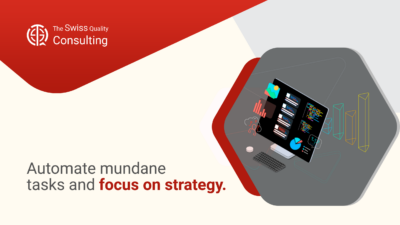Unlocking business success: Navigating Change with Executive Coaching Services
In the dynamic landscape of modern business, the quote “We know there is no such thing as freedom without the risk of failure” holds profound relevance. Business executives, mid-level managers, and entrepreneurs must acknowledge that embracing change is intrinsic to achieving lasting success. This article explores the crucial elements of change management, executive coaching services, effective communication, and the role of generative artificial intelligence in fostering leadership and management skills.
Change Management: A Strategic Imperative
Change isn’t a storm to be endured; it’s the new normal. In today’s fast-paced, competitive landscape, adaptation isn’t just a necessity, it’s a strategic imperative. Successful organizations don’t wait for external forces to push them; they proactively embrace change management as a tool for growth and differentiation.
Imagine two companies facing market disruption. One clings to outdated practices, weathering the storm with dwindling profits and frustrated employees. The other, led by change-savvy executives and managers, sees the disruption as an opportunity to transform. They guide their teams through the transition, fostering agility, innovation, and a culture of continuous learning. This company emerges stronger, more competitive, and ready to thrive in the new landscape.
The difference lies in leadership. Executives who understand the power of change management:
Communicate the “why” clearly: They articulate the rationale behind the change, aligning it with the organization’s vision and values, ensuring everyone understands the bigger picture.
Build buy-in and trust: They actively engage employees, address concerns, and empower them to participate in the change process.
Focus on the human element: They recognize that change impacts people, not just processes. They provide support, training, and resources to help individuals navigate the transition.
Celebrate successes and learn from failures: They acknowledge milestones, reward contributions, and use setbacks as opportunities to improve.
Change management isn’t a one-time event; it’s an ongoing journey. By equipping themselves and their teams with the tools and mindset to thrive in change, leaders can transform their organizations from passive observers to active shapers of their own destinies. Remember, the future belongs to those who embrace change, not resist it. Are you ready to lead the way?
Executive Coaching Services: Nurturing Leadership Excellence
Executive coaching services play a pivotal role in developing leadership and management skills. Engaging with a seasoned coach provides executives with personalized guidance, fostering self-awareness and strategic thinking. As business leaders navigate the complexities of decision-making, executive coaching becomes a valuable resource for unlocking individual and organizational potential.
Effective Communication: The Foundation of Business Success
Communication is the cornerstone of successful leadership. Effective leaders understand the importance of clear and transparent communication to foster collaboration and alignment within their teams. By cultivating a culture of open communication, businesses can navigate challenges more effectively and build a resilient workforce capable of adapting to change.
Generative Artificial Intelligence: Transforming Business Dynamics
The advent of generative artificial intelligence introduces innovative solutions for enhancing business processes. AI technologies can streamline operations, analyze vast datasets, and provide valuable insights for informed decision-making. Integrating AI into business strategies empowers executives to make data-driven choices, mitigating risks associated with uncertainty.
Leadership in the Face of Failure
The quote emphasizes that true freedom comes with the acceptance of the risk of failure. In the business realm, leaders must embrace failure as an inherent part of the journey to success. It is through setbacks that valuable lessons are learned, and resilience is built. Executives and managers who cultivate a culture that views failure as a stepping stone to improvement foster an environment where creativity and innovation flourish.
The Role of Management Consulting in Business Transformation
Management consulting provides invaluable insights for organizations navigating change. Consultants bring external perspectives and industry expertise, guiding businesses in strategic decision-making. Through collaborative efforts with management consultants, companies can implement effective change management strategies and optimize their operations for sustained success.
Business News Updates: Staying Informed for Strategic Planning
Keeping abreast of business news updates is essential for executives and managers seeking to make informed decisions. Market trends, industry shifts, and emerging technologies all contribute to the evolving business landscape. Regularly updated knowledge ensures that leaders can adapt their strategies to capitalize on opportunities and navigate potential challenges.
Conclusion
In conclusion, the journey to business success is paved with the willingness to embrace change and the acceptance of the risk of failure. Executive coaching, effective communication, generative artificial intelligence, and management consulting are instrumental in navigating this path. Leaders who cultivate a culture that values continuous improvement and resilience will find themselves better equipped to steer their organizations towards lasting success.
#BusinessSuccess #ChangeManagement #ExecutiveCoaching #CommunicationSkills #ArtificialIntelligence #ManagementConsulting























